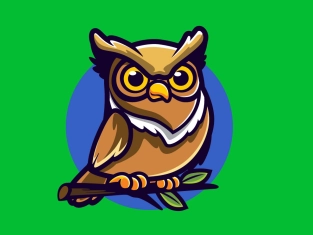by PushtoLearn
Buck naked vs Butt naked
What Do They Mean?
Both "buck naked" and "butt naked" mean the same thing: someone is entirely naked. But the origins and correctness of these phrases differ.
"Buck Naked": This is the original and more widely accepted phrase. The word "buck" might refer to a male deer, and it’s suggested that the phrase comes from the idea of being as naked as a wild animal, or a "buck."
"Butt Naked": This phrase is a more recent variation. "Butt" refers to your backside. People started saying "butt naked" as a humorous or playful way to describe being completely naked.
Which One Is Correct?
Correct Phrase: "Buck Naked" is the correct and traditional phrase.
Commonly Used Phrase: "Butt Naked" is also widely used and understood, but it's considered less formal or proper.
Common Errors
Many people confuse these phrases because they sound alike. The key error is using "butt naked" in formal writing or speech where "buck naked" would be more appropriate.
Examples Using "Buck Naked"
➡️ Storytelling:
"When the hunter returned to his camp, he was buck naked after losing his clothes in the river."
(Here, "buck naked" emphasizes the seriousness of the situation.)
➡️ Formal Writing:
"The statue was carved to depict a buck naked figure, representing purity and innocence."
(This is an appropriate use in a more formal description.)
➡️ Historical Reference:
"Early pioneers were often seen buck naked when bathing in the streams, as there were no bathing suits back then."
(This example uses "buck naked" in a historical context.)
➡️ Serious Conversation:
"The man was found buck naked in the woods, clearly in need of help."
(Using "buck naked" here gives a serious tone to the situation.)
Examples Using "Butt Naked"
➡️ Casual Conversation:
"After the party, he jumped into the pool butt naked, making everyone laugh."
(Here, "butt naked" adds humor and casualness to the story.)
➡️ Slang or Informal Speech:
"The toddler ran through the house butt naked after his bath."
(This is a common and playful way to describe a child's behavior.)
➡️ Joking with Friends:
"I walked in and found him butt naked, dancing to his favorite song."
(This example shows how "butt naked" can make the situation sound funny.)
➡️ Social Media Post:
"She posted a funny meme about being butt naked while working from home."
(On social media, "butt naked" fits the casual and playful tone.)
Mixing Up the Phrases
Sometimes, the phrases might be used interchangeably depending on the speaker’s tone or the situation. However, "buck naked" is more likely to be used in serious or formal contexts, while "butt naked" is typically used in humorous, informal, or playful settings.
Example:
➡️ Formal: "The painting depicted a buck naked figure standing in the wilderness."
➡️ Informal: "He was butt naked when he opened the door by mistake!"
FAQ
Which phrase is older, "buck naked" or "butt naked"?
"Buck naked" is the older phrase and has been in use since the 19th century.
Is "butt naked" grammatically correct?
While "butt naked" is commonly used, it is not the original or traditional form. It is considered informal.
Can I use "butt naked" in formal writing?
It's better to use "buck naked" in formal writing or speech.
Why do people say "butt naked"?
People say "butt naked" because it sounds funny and emphasizes the idea of being completely naked.
Are "buck naked" and "butt naked" used differently in different English-speaking countries?
Both phrases are understood in most English-speaking countries, but "buck naked" is generally more accepted as correct.

